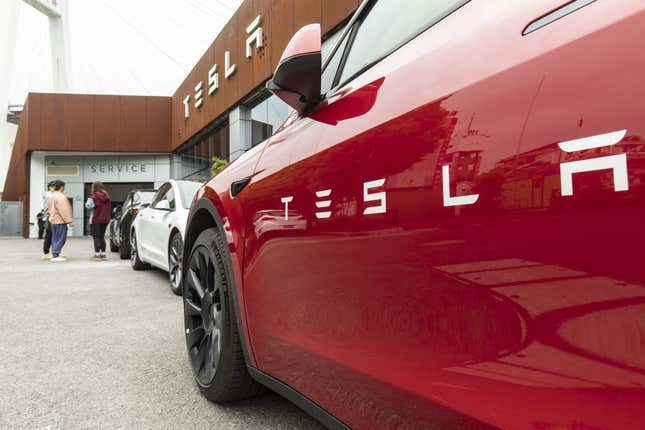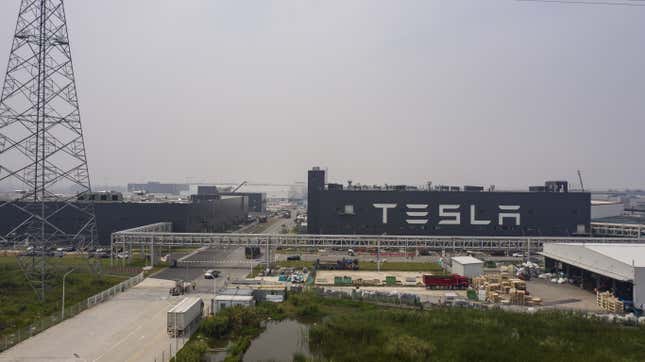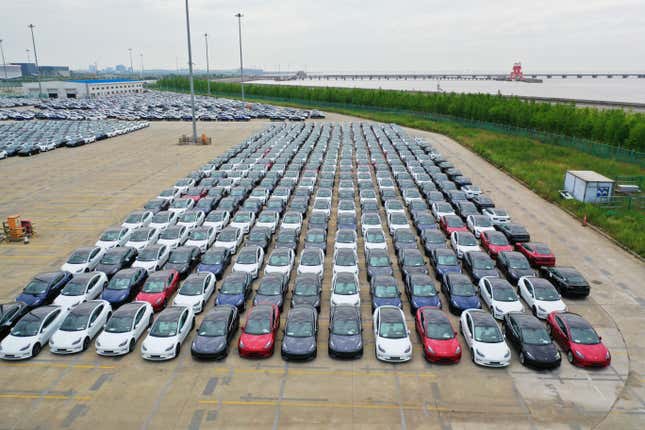
Tesla is reportedly planning to cut production at its plant in Shanghai by 20 percent amid lower demand of the Model 3 and Model Y in China. News outlets including Reuters and Bloomberg cited people with knowledge of Tesla’s plans to scale back production, but the EV maker has officially denied the claims, calling them “untrue” and labeling them “false news” without adding further explanation.
A cut in production would be the first time that Tesla willingly scaled back production at one of its plants; Tesla reportedly delivered 100,291 EVs in November, according to China’s Passenger Car Association.

Tesla’s record-breaking month was partially possible thanks to the latest expansions to its Shanghai Gigafactory, which has been steadily increasing production capacity. Tesla shipped 71,704 EVs from Shanghai in October 2022, and shipped nearly half as fewer models (year-over-year) with 52,859 EVs from Shanghai in November 2021.
The upward trend of Tesla’s shipments is clearly undeniable, but Bloomberg reports that there are a number of signs indicating Tesla is making more cars than it can sell: the first are price cuts of up to nine percent for some models made in Shanghai; then there are additional buying incentives, like insurance subsidies from Tesla; the company is also reinstating user-referrals for more discounts; and the last sign is the shorter delivery time for buyers of the domestically-produced Model 3 and Model Y.
Of course, these indicative signs alone don’t mean that Tesla, indeed, has a demand problem, but when taken together with the increased pressure that Tesla is now seeing from rival EV makers in China, the rumors start to sound at least a bit more plausible than Tesla is making them out to be.
The American EV maker is facing more competition than ever before in the major market: domestic Chinese carmakers like BYD and Guangzhou Automobile Group are charging more money for their EVs, and yet buyers are flocking to the companies. BYD delivered over 230,000 cars in November and almost half of them, or close to 114,000 cars, were fully-electric models.
That’s well over 13,000 more BYD EVs sold than Teslas, which Bloomberg claims is the reason Tesla is now resorting to incentives and has even increased spending on television advertising in China — all of which is uncharacteristic for the company. Now, the company could possibly be cutting production, too, after having pushed hard for more production capacity at its Shanghai Gigafactory.
